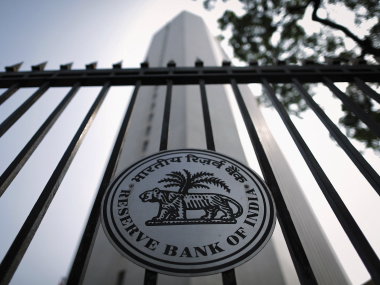New Delhi: To help banks recover their bad loans, RBI will soon herald a Strategic Debt Restructuring regime to help banks take control of distressed listed firms, after market regulator Sebi relaxed its norms for such cases. At RBI’s request, the Securities and Exchange Board of India (Sebi) has agreed to ease its norms for lenders to convert their debt into equity in distressed listed companies, following which banks may not need to make the mandatory open offer in case of acquiring control in such entities.[caption id=“attachment_2136355” align=“alignleft” width=“380”]  New norms. Reuters[/caption] Besides, banks would not be subject to strict norms for computation of pricing formula for acquisition of shares and for lock-in provisions of such stake, among others. The new norms will be notified soon by Sebi pursuant to the approval from its board yesterday. To make it easier for the banks in such cases, RBI will soon introduce its Strategic Debt Restructuring (SDR) scheme, which banks will be able to explore after Corporate Debt Restructuring (CDR) and other restructuring exercises, a senior official said. This would ensure that promoters would put in more at stake in reviving the stressed companies, while providing lenders with enhanced capabilities to initiate change of management in companies which fail to achieve the projected viability milestones under CDR or Joint Lenders’ Forum (JLF) schemes. The total non-performing assets of public sector banks alone stand at nearly Rs 3 lakh crore, while top 30 defaulters are sitting on bad loans worth Rs 95,122 crore as on December 2014. In the past, banks have converted bad debt into equity in a few cases like Kingfisher, but the conversion has been mostly difficult including due to regulatory and legal issues. Under the proposed SDR scheme, conversion of outstanding debt will be done by a consortium of lenders. Such consortium or JLF may include not only banks, but also financial institutions and NBFCs. The scheme will not be applicable in case of a single lender or bank. The exemption from Sebi regulations will be available only for the JLF lenders and not for the buyers to whom the lenders may subsequently divest their stake. Under SDR, post-conversion, lenders will collectively hold 51 percent or more of the equity shares in the borrower company resulting in change in management or control. If conversion happens in phases, debt resulting in at least 51 percent of equity shares will be converted within one year of finalisation of SDR. Further conversion can happen even beyond one year and the same will also be eligible for relaxation under Sebi Regulations. he pricing formula for preferential issue prescribed under Sebi’s regulations will not be applicable to SDR scheme. The conversion can be done at a fair value to be determined according to the RBI Guidelines, but not below the face value. The converted equity shares will be subject to a lock-in of one year. However, lenders can transfer control and their shares to an entity before the completion of lock-in period, provided that lock-in on such shares continues for the remaining period with the transferee. The existing special provisions in respect of CDR mechanism in the Sebi Regulations for preferential issues will also continue to be in force. The Sebi norms provide certain operational flexibility in respect of determination of relevant date for pricing, timelines for allotment, terms of payment, special provision for lock-in, etc for CDR schemes. Further, Sebi norms provide for general exemption from open offer obligations for acquisition of shares of a target company (not involving change of control in such a target company) in respect of the CDR schemes. However, there is no exemption from the pricing formula in such cases. Sources said that RBI had represented to Sebi that conversion of loans into equity as part of restructuring of a company in acute distress may be exempted from Sebi norms for pricing formula, open offer regulations, lock-in, etc, to make such company viable and protect the interests of the lenders. A few other market participants had also made such requests. As a rationale for seeking exemption from the Sebi norms, RBI had said that the purpose of conversion of loan into equity is actually in the interest of existing shareholders as the alternative for the creditors would be to enforce their security interest and start recovery proceedings which would further erode the shareholder value. It was further submitted that conversion price under the existing norms was higher of the average of weekly high and low of the volume weighted average price during the last 26 weeks or the last two weeks preceding the relevant date, may be substantially higher than the current market price. This was resulting in substantial loss to the lenders, while it was observed that the share prices of company in financial distress keep falling over time. It was felt that in case of companies in distress where turnaround seems feasible based on viability parameters of the company, all possible support needed to be provided to the process of restructuring. RBI and Sebi felt that reviving the prospects of a company will benefit all the stakeholders and keeping this in mind, norms could be relaxed for restructuring of such companies if such an exercise was carried out under the RBI guidelines. The decision to tweak the pricing formula for conversion of debt into equity would also pave the way for bankers to have a larger say in activities of the distressed company by acquiring majority stake and taking over the management. PTI
RBI and Sebi felt that reviving the prospects of a company will benefit all the stakeholders and keeping this in mind, norms could be relaxed for restructuring of such companies if such an exercise was carried out under the RBI guidelines.
Advertisement
End of Article
Written by FP Archives
see more


)
)
)
)
)
)
)
)
)



